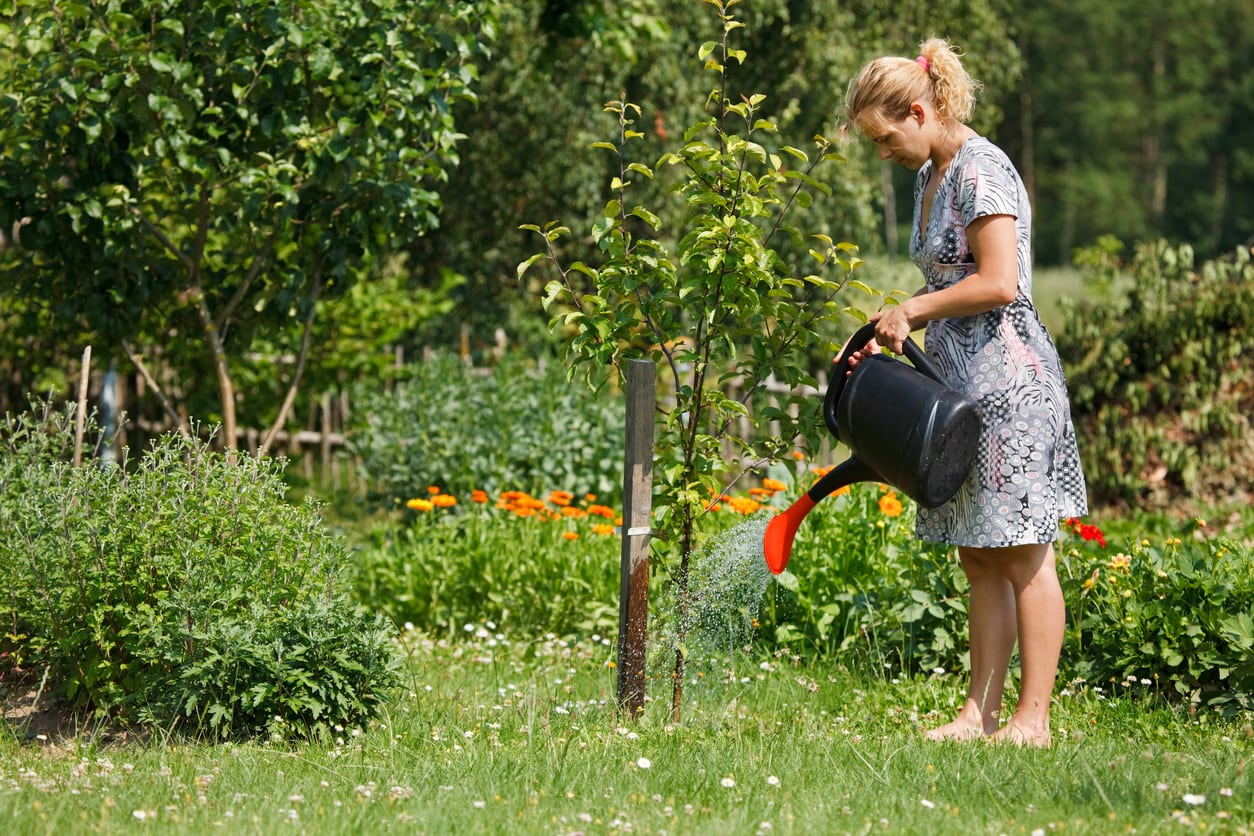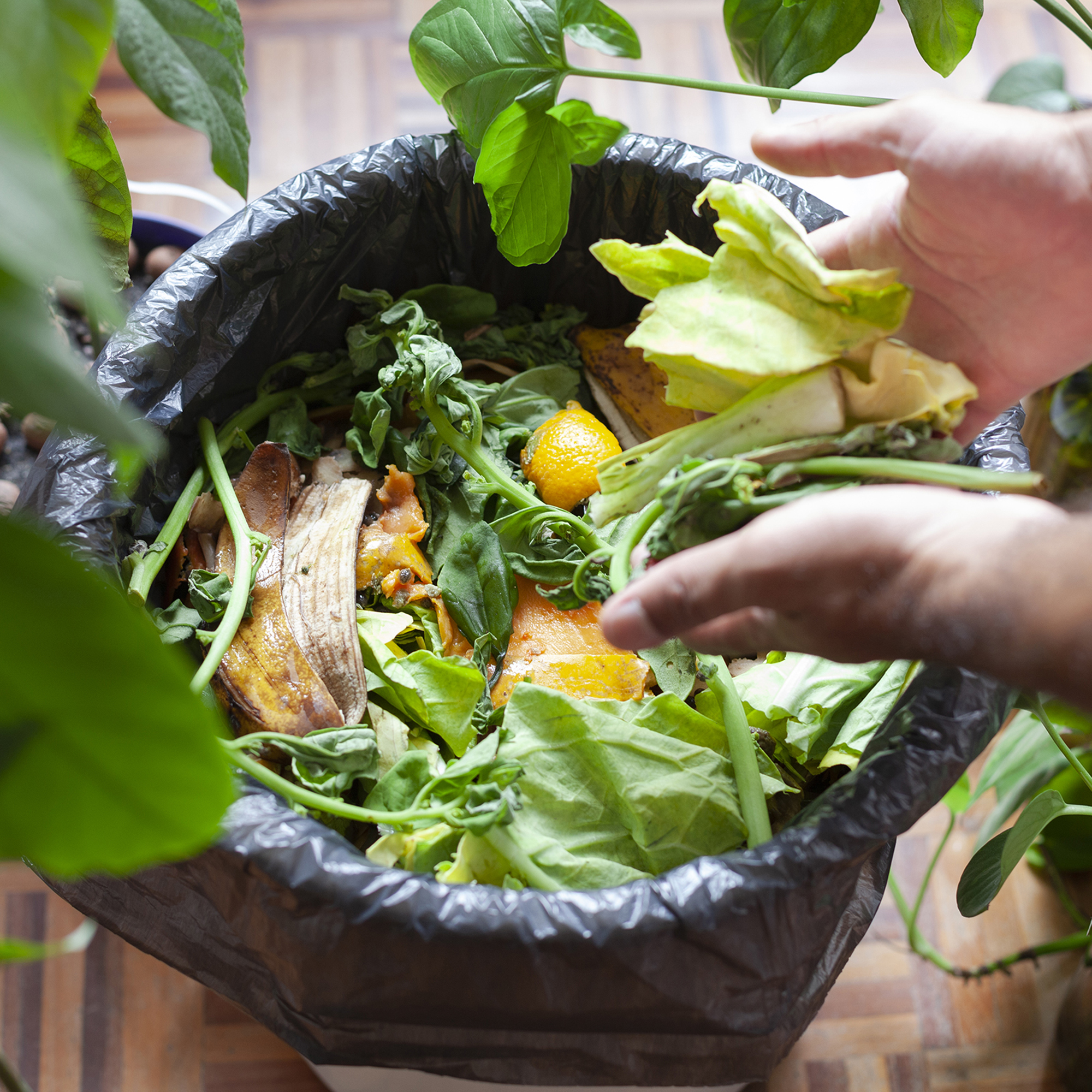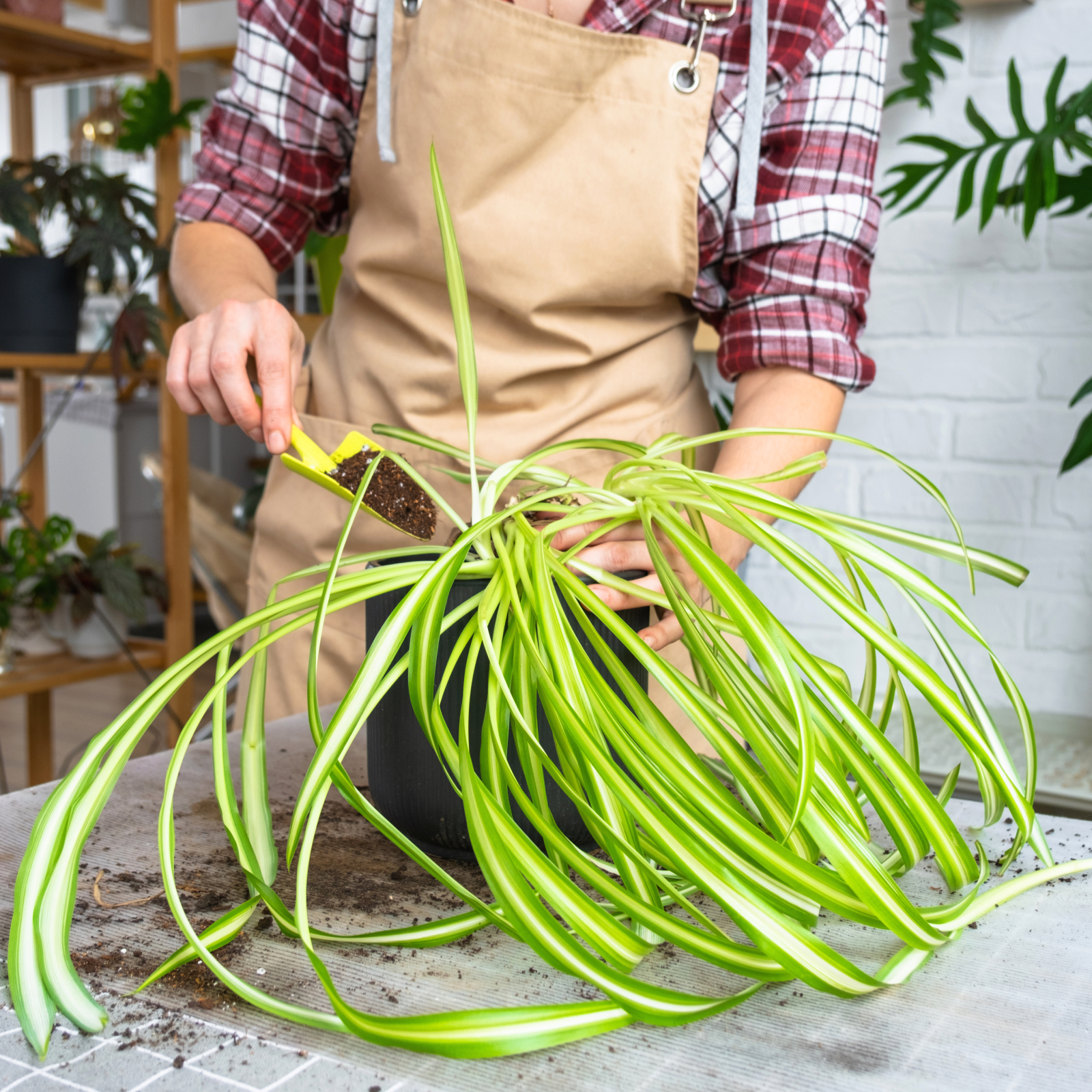Apple Tree Irrigation – How To Water An Apple Tree In The Landscape


Apple trees are great for backyard orchards, providing fruit year after year, a crisp and sweet fall treat. But, if you don’t understand how to care for your trees, you may lose that fruit. Watering apple trees is usually not needed after the first year, but until they are at that established point, irrigation is a crucial element of care.
How Much Water Do Apple Trees Need?
Apple tree water requirements depend on rainfall. In general, for an established tree, you won’t need to water it unless you are not getting much rain or there is a particularly dry spell or even drought. About an inch (2.5 cm.) or so of rainfall every week to ten days is adequate for most apple trees. Trees in their first growing season may need a little more than this.
How to Water an Apple Tree
When you do need to water your tree, it is important to do so without creating standing water and soggy roots. This can be as damaging as drought conditions for your tree. Too much water depletes oxygen from the soil, prevents the roots from absorbing necessary minerals, and makes a tree susceptible to rot and infections. Ideal apple tree irrigation involves giving the roots a deep soaking. Let a garden hose trickle around the base of the tree for an extended period of time. This will give the soil time to soak up the water and minimize runoff. A soaker hose can do multiple trees at one time. Each time you water, make sure the ground around the tree and roots gets fully soaked. Knowing how much water to give your apple tree will depend on factors unique to your climate, weather, and soil. If you see standing water, you may be overwatering. If the weather is unusually hot or dry, you may need to increase watering for that period of time. Waterlogged roots are always worse than dry roots, so always err on the side of caution when watering apple trees.
Gardening tips, videos, info and more delivered right to your inbox!
Sign up for the Gardening Know How newsletter today and receive a free copy of our e-book "How to Grow Delicious Tomatoes".

Mary Ellen Ellis has been gardening for over 20 years. With degrees in Chemistry and Biology, Mary Ellen's specialties are flowers, native plants, and herbs.
-
 4 Superfast Composting Methods: Turn Waste Into Garden Gold In 30 Days Or Less
4 Superfast Composting Methods: Turn Waste Into Garden Gold In 30 Days Or LessTry the fastest composting methods to turbocharge your pile and transform kitchen scraps and garden waste into finished compost in just a few weeks.
By Mary Ellen Ellis
-
 Best Spider Plant Soil – Complete Soil Guide And Expert Tips For Keeping Plants Happy
Best Spider Plant Soil – Complete Soil Guide And Expert Tips For Keeping Plants HappySpider plants are fun and easy plants to grow, but what is the best soil for a spider plant? Selecting the right soil is important so they can thrive.
By Bonnie L. Grant